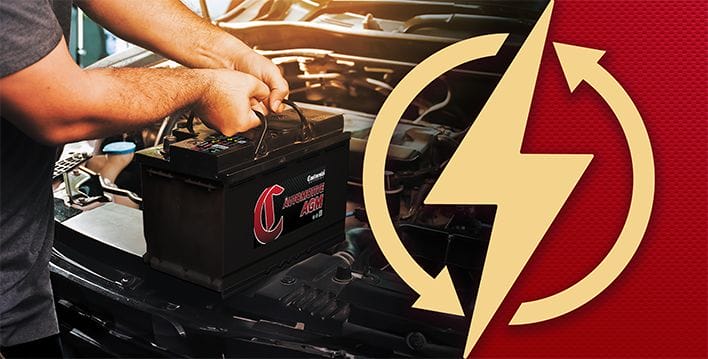
Freezing Temperatures are Worse on Your Battery Than Hot Summer Temps
Dead car batteries are one of the most common causes of a car that won’t start. Hot summer and cold winter temperatures can significantly reduce the lifespan of your battery.
You might be wondering why extreme temperatures have such a damaging effect on car batteries. Read on to learn the reasons why hot/freezing temperatures take their toll on your car battery and what you can do to avoid it.
Car Batteries in the Summertime
Car batteries produce and store electricity through means of a chemical process. Excessively hot or cold temperatures can alter this chemistry at different times during the year.
For example, in the hot summer temps, the following can occur:
Overcharging—Heat can cause the components of the battery charging system to fail. For example, there are regulators that prevent the battery from becoming overcharged. In hot summer temps, these regulators can fail—and allow excessive electricity to kill your battery slowly.
Battery Corrosion—The lead plates inside your car battery can become corroded after repeated exposure to high temperatures.
Battery Fluid—The fluid inside the batteries is critical to safe and efficient operation. During the summer, temperatures can reach upwards of 160F or higher, causing the fluid to evaporate.
Over the summer months, your battery is subjected to daily stress from the high heat. In some extreme climates, the average lifespan of a car battery can be as short as 12 months.
Car Batteries in the Wintertime
During the wintertime, your battery needs to work much harder thanks to the cold weather. The damage done during the hot summertime can weaken the car battery and cause it to die in the winter.
There are several reasons why your car battery dies in the winter:
Engine Oil is Thicker—Engine oil helps lubricate the internal metal parts of your engine and allows it to turn over. When exposed to cold temperatures, the oil starts to thicken and will cause the battery to work even harder.
Limited Recharge—Batteries recharge much slower in cold temperatures. If your daily driving consists of short trips to the local stores, this doesn’t give your battery enough time to recharge the electricity that it spent.
Increased Loads—When driving in cold temperatures, you often run your headlights, windshield wipers, heater, and other electronic quality-of-life components. This causes an increased power draw from your car battery.
Limited Capacity—As outside temperatures drop, so does the internal capacity of your battery. This means it has much less power to start your car.
How to Avoid a Dead Battery in the Winter
If you live in a climate that experiences extreme temperatures in the summer and winter, there are a few things that you can do to extend the life of your car battery proactively:
- Perform regularly scheduled battery maintenance. Clean off corrosion and dirt, which can prevent the electricity from flowing.
- Test your battery in the fall and spring time. Many auto part stores will hook your battery up to a machine that will tell you its overall health. If your battery shows signs of weakness, it’s better to proactively buy a new one than deal with a dead one while you’re stranded in a store parking lot in the snow.
- Try to limit electrical consumption. This may be challenging in freezing cold temperatures, but do you really need to run your seat heaters?
- When you park your car, turn off your radio, interior lights, and other electronic components. These systems will drain a battery in a matter of a few hours in the cold weather.
Signs Your Battery is Dying
In addition to getting your battery checked by a professional auto shop, there are a few warning signs that will let you know your battery is about to die:
- When it takes several seconds for your car to turn over. A healthy car battery should immediately start a vehicle.
- The “check battery” light on your dashboard becomes illuminated.
- You have a battery older than 3-5 years.
- Headlights and other internal lights appear dim.
- The car radio and other internal electrical components stop working.
Continental Car Batteries
The hot summer and cold winter temperatures create a devastating 1-2 punch that can knock your battery out cold in the wintertime. This is why it’s essential to perform maintenance in the spring and fall months before the extreme temperatures set in.
At Continental Battery, we’ve been providing our customers with high-quality batteries for well over 85 years. Our line of automotive batteries provides superior performance and reliability.
We’re dedicated to developing and maintaining great and long-lasting customer relationships backed up by our superior quality products. Contact us today to learn more about our company and line of car and truck batteries.






